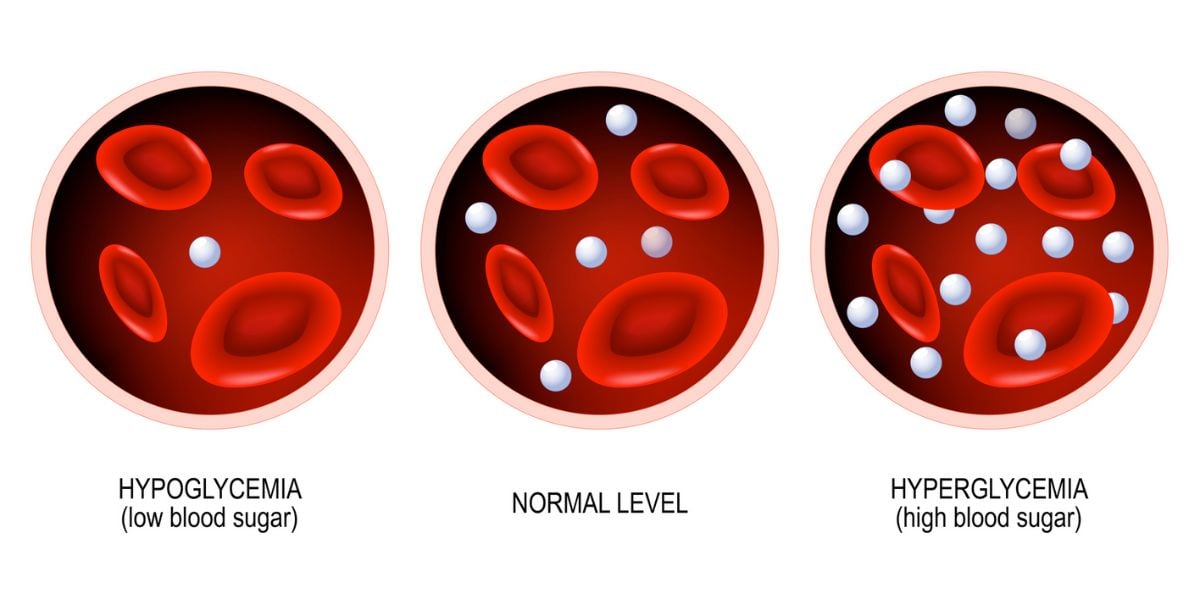Depending on the type of treatment regimen you use to control your diabetes, there are some vitamins and minerals that may be beneficial for your condition.
Before adding any vitamins or adding dietary supplements to your daily diet, discuss these changes with your healthcare team and doctor to ensure they are safe alongside any prescribed medication you’re on.
ALA and GLA
ALA (alpha-lipoic acid) is a versatile and potent antioxidant, and may function to help diabetic neuropathy and reduce pain from free-radical damage.
Also, some studies link ALA to decreased insulin resistance and thus the control of blood sugar.
GLA (gamma-lipoic acid) is another naturally occurring antioxidant that is present in evening primrose oil, borage oil and blackcurrant seed oil. GLA may improve the function of nerves damaged by diabetic neuropathy.
Biotin
Biotin works in synergy with insulin in the body, and independently increases the activity of the enzyme glucokinase.
Glucokinase is responsible for the first step of glucose utilisatio, and is therefore an essential component of normal bodily functioning.
Glucokinase occurs only in the liver, and in sufferers from diabetes its concentration may be extremely low. Supplements of biotin may have a significant effect on glucose levels for both type 1 and type 2 diabetics
Carnitine (L-Carnitine, Acetyl L-Carnitine)
Carnitine is required by the body in order to correctly use body fat in the production of energy. It is naturally occurring and derives from hydrophilic amino acids. Diabetics who try carnitine generally respond well, and high levels of fat in the bloodstream (cholesterol and triglycerides) may fall fast.
Carnitine helps to break down fatty acids in the body and binds acyl residues. For these reasons, it may be useful to prevent diabetic ketoacidosis
Chromium
Chromium is a crucial nutrient in the body’s fight against diabetes. By using either brewer’s yeast stocked with chromium, or chromium chloride, diabetic patients may be able to improve glucose tolerance, lower their fasting glucose levels, decrease insulin levels and cut cholesterol and triglyceride levels, whilst increasing HDL-cholesterol levels
Several principal double-blind studies have shown that supplemental chromium may raise glucose tolerance in patients with both type 1 and type 2 diabetes.
Exercise also increases the concentration of tissue chromium. Chromium may have a role to play in pre-diabetics and women suffering from gestational diabetes.
Coenzyme Q10
Coenzyme Q10 is a compound that occurs naturally in the body, and may be able to help with carbohydrate metabolism. It is has been proven that animals suffering from diabetes are coenzyme Q10 deficient.
Clinical trials using coenzyme Q10 suggest that supplementation may significantly lower blood sugar levels. Coenzyme Q10 also oxygenates the blood, and therefore may be able to help in some cases of diabetic retinopathy
Inositol
Inositol is an important part of several key bodily processes including the health of cell membranes and blood cholesterol levels. Furthermore, inositol may have a role to play in reversing the effects of diabetic neuropathy (nervous damage) caused by diabetes.
Manganese
A deficiency of manganese is common amongst diabetics, and in some circles it is thought to actually be a part of the cause of diabetes. Manganese could be a key co-factor in the way enzymes within the body handle glucose metabolism.
Magnesium
Magnesium tends to decline in people with diabetes, and may fall to dangerously low levels amongst those suffering from severe diabetic retinopathy.
Magnesium deficiency has been shown to directly influence the blood sugar control of type 2 diabetics.
Magnesium deficiency may interrupt the insulin secretion process, and also increase insulin resistance.
When using supplemental magnesium, diabetics may be able to lower their insulin dosage.
Niacin
Niacin can be for people with high cholesterol and may be used in combination with circulation treatments.
High levels of niacin may actually impair glucose tolerance and therefore some people with diabetes may be advised not to take it. Speak with your doctor if you are in doubt.
Potassium
Administering insulin to the body, the treatment regime employed by many diabetics, may cause a potassium deficiency. By supplementing a healthy diet with potassium, sufferers from diabetes may improve their sensitivity to insulin, and the effectiveness of the hormone.
Taurine
Taurine is not used in protein synthesis, but is generally found in protein-rich foods.
Type 1 diabetics often suffer from low taurine levels, and this can in turn affect the thickness of the blood and increase the risk of heart disease. Supplementary taurine for diabetic patients may be able to correct levels of blood viscosity.
Vanadium
Vanadium supplements may lead to a slight increase in sensitivity to insulin, and may therefore allow diabetic patients to decrease the amount of insulin that they need to keep their blood sugar levels under control. Studies on both animals and humans have proved links between vanadium levels and normal blood glucose.
Vitamin B6
Neuropathy, the severe damage caused to the nervous system by high blood sugar levels, may be associated with deficiency of vitamin B6, also known as pyridoxine.
Pyridoxine supplements may be able to improve glucose tolerance, particularly for sufferers from gestational diabetes, or impaired glucose tolerance caused by the birth control pill.
Vitamin B6 also has a strong role to play in the prevention of diabetes-related complications.
Vitamin B12
Vitamin B12 may have a strong role to play when treating diabetic neuropathy.
The presence of vitamin b 12 is necessary for the correct functioning of nerve cells, and therefore taking it as a supplement may help to reduce nerve damage.
In extreme cases, the extra effect of intramuscular B12 may be necessary.
Vitamin C
Type 1 diabetics generally have low vitamin C levels. By increasing the amount of vitamin c in the bloodstream, the amount of sorbitol may be lowered.
Sorbitol is a harmful sugar when it accumulates, and its presence may lead to increased risk of diabetic complications such as retinopathy, neuropathy and kidney damage. In the case of type 2 diabetics, vitamin c may play a role in improving glucose tolerance.
Vitamin D
Vitamin D has a number of benefits for your health. Produced by the body in response to sun exposure, it is thought to help boost insulin sensitivity, which is vital for blood glucose regulation.
Vitamin E
Vitamin E can oxygenate the blood, fight toxins and improve the activity of insulin within the body. When the body has an insufficient amount of vitamin E, internal structures can be damaged by enhanced free-radical damage.
Increasing vitamin E in the bloodstream may decrease the likelihood of developing type 2 diabetes, and in type 2 diabetics may improve glucose tolerance. Furthermore, the antioxidant nature of vitamin E may reduce the risk of diabetic complications.
Zinc
The presence of a zinc deficiency in the body has also been suggested to contribute to the development of diabetes in some humans
Zinc itself may be a crucial element in insulin metabolism. Zinc is well-known as a powerful guardian against viral infections, and may also act to protect beta cells from destruction. Type 1 diabetics are often zinc deficient, and supplements have been shown to lower blood sugar levels in some type 1 cases.




